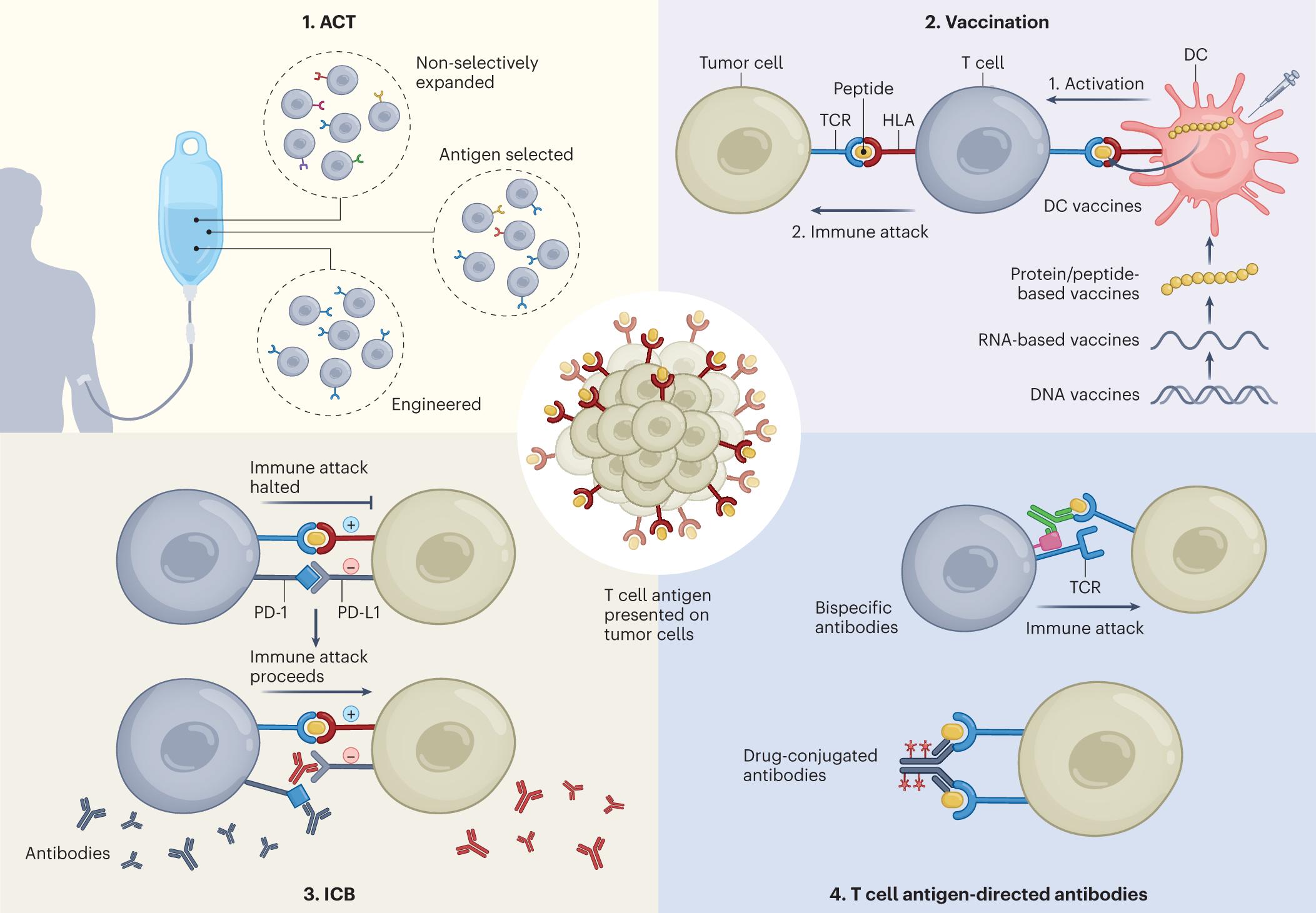Immunotherapy Target Discovery Service
Tumor immunotherapy utilizes active or passive methods to provoke tumor-specific immune responses in the body, harnessing their inhibitory and cytotoxic functions against tumor cells. Characterized by its specificity, efficacy, and mitigation of collateral damage, immunotherapy distinguishes itself from conventional methods such as surgery, targeted therapy, and chemotherapy. Unlike direct destruction of cancer cells, immunotherapy mobilizes the body's immune cells capable of recognizing tumors, augmenting the host immune system's capacity to combat cancer indirectly. Notably, this approach induces minimal side effects while ensuring safety and efficacy. Currently, tumor immunotherapy comprises four major categories: immune checkpoint inhibitors, tumor vaccines, cell-based immunotherapy, and non-specific immune modulators.
T cells play pivotal roles in the adaptive immune system. Upon antigen recognition (protein fragments or peptides), activated T cells contribute to immune responses and aid in pathogen clearance. Major Histocompatibility Complex (MHC) molecules, or Human Leukocyte Antigen (HLA) in bodys, bind these peptides, presenting them to T cells. T cells, in turn, recognize them via their surface T Cell Receptors (TCR), initiating the initial step in T cell activation, which significantly influences disease outcomes. There are two classes of glycoproteins presenting antigens: MHC class I and II molecules, which present antigens to CD8 T cells and CD4 T cells, respectively.

Figure 1. T Cell Antigen Occupies the Central Role Across All Immunotherapeutic Methods [1]
Depending on the mode of antigen delivery, tumor vaccines can be classified into protein/peptide vaccines, cell vaccines, nucleic acid vaccines, etc. Among these, peptide tumor vaccines predominate due to their drug-like properties, relatively high safety profile, and extensive foundational data. In recent years, with advancements in next-generation sequencing and immunopeptidomics, the development of personalized peptide vaccines has made significant strides. The identification of novel immunotherapeutic targets, particularly peptides and key protein targets capable of activating T cells, holds immense clinical promise.
MtoZ Biolabs offers comprehensive platforms for immune therapeutic target discovery and screening, providing services for the identification and screening of tumor immune peptides. Our team employs high-precision mass spectrometry for immune peptidome analysis to identify classical and non-classical antigen libraries of tumors. Through multi-layered experiments involving bioinformatics predictions and experimental determinations, we evaluate the MHC binding affinity and T cell activation capability of candidate immune peptides, screening for potential immunotherapeutic targets. With MtoZ Biolabs, we provide immune peptidome identification, peptide-MHC binding affinity analysis, peptide antigen presentation analysis, peptide activation of T cell capability, and various experimental services. We offer molecular, cellular, and multi-layered screening models, along with products like MHC class I pentamers and MHC class II tetramers, offering comprehensive solutions for the identification and screening of tumor-related antigens and other immunotherapeutic targets.
References
[1] Peri, A., Salomon, N., Wolf, Y. et al. The landscape of T cell antigens for cancer immunotherapy. Nat Cancer 4, 937–954 (2023). https://doi.org/10.1038/s43018-023-00588-x.
How to order?







